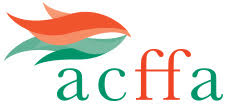After ten years of rigorous review and study, Health Canada's Veterinary Drugs Directorate (VDD) has announced the full approval of SLICE (emamectin benzoate) for control of immature and adult stages of sea lice on farm-raised salmon.
As has always been the case, under the new approval SLICE® treatment is only available through veterinarian prescription. The approval was granted after the drug met all of Health Canada’s requirements for human safety. Prior to this announcement, SLICE® was authorized for sale to veterinarians on a case-by-case basis through the VDD’s Emergency Drug Release (EDR) program.
SLICE® is a veterinary product available by prescription to minimize the number of sea lice on farmed salmon. The active ingredient in SLICE® is emamectin benzoate, a derivative of
a naturally occurring chemical produced by soil bacteria. Based upon the concentration and form utilized for sea lice treatment, SLICE® is classified as a drug or therapeutant. Other uses for emamectin benzoate include vegetable crops in Japan and the US.
SLICE® treatment is effective against all stages of the sea lice and provides protection from re-infection for several months post-treatment. It is administered to fish by adding it to fish feed.
The active ingredient in SLICE® is not very soluble in sea water and instead has a strong tendency to bind to particles like fish feed or feces or to other organic matter. Released through fish feces, it loses its active properties. It is biodegradable and will eventually be
incorporated into soil components.
SLICE® is tolerated well by salmon and they show no measurable effects at the recommended dose and treatment length. Other animals living in the marine environment adjacent to the fish farms have been studied to determine any impact of the treatment.
Overall, no toxic effects were found; however, marine worms living in the sediment are considered to be slightly sensitive to emamectin particles.
Approval of SLICE® for use in aquaculture required a rigorous and extensive review by the Veterinary Drugs Directorate (VDD), a branch of Health Canada. In other salmon farming countries – UK, France, Chile, Iceland and Norway - SLICE® has been approved for a number of years. A zero day withdrawal time is common to some countries and has been adopted by Health Canada.
More about Sea Lice, Lobster and Sea Lice Management
- Sea lice are a natural parasite of salmon and other fish species. Sea lice live in saltwater; therefore, farmed salmon enter saltwater free of the parasite and get sea lice from wild fish.
- Sea lice on farmed salmon are monitored and lice are managed to minimize negative impacts from the lice on fish. Slice® is highly effective against all stages of sea lice.
- Any chemical administered in sufficient quantity can be hazardous to living organisms. Once a hazard is identified, it is important to evaluate the risk to susceptible organisms using estimates of the actual level of exposure to the chemical. This risk analysis is still required for the use of Slice® in the treatment of sea lice infestations of cultured salmon.
- Based on current knowledge, it is thought to be unlikely that lobsters would eat enough salmon feed to ingest the high doses of emamectin benzoate used in this laboratory study (0.6 and 0.8 micrograms EB per gram of lobster). In a preliminary 7-day study, lobsters ate relatively little medicated salmon feed, even after they had been starved for 2 weeks prior to being offered the feed.
- Lobsters were used in the study because crustaceans are more sensitive to the drug than are other invertebrates, and because of concerns expressed by fishermen that lobsters may be eating salmon feed and faeces that have collected under fish cages.
- New Brunswick salmon farmers are using Slice® as part of an integrated pest management approach which will include a menu of natural and therapeutic options for the control of sea lice. The integrated pest management strategy includes the Bay Management Areas which ensures only single year class fish are stocked in each area, fallowing of farms, the use of SLICE® and, currently undergoing trials - AlphaMax®, as an alternative therapeutant bath treatment.
NBSGA Contact: Pamela Parker, Executive Director
New Brunswick Salmon Growers Association
(506) 755.3526
